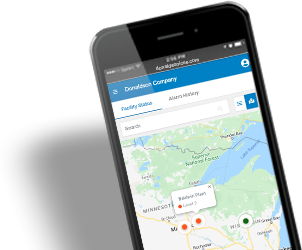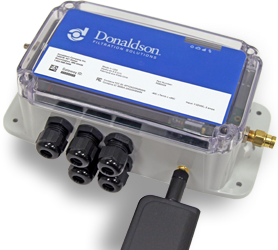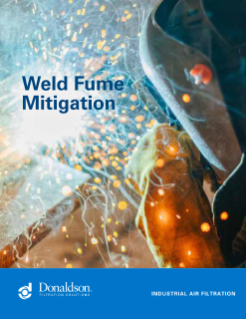Dust & Fume Collection in Welding Applications
Fume and Dust Collection Solutions for Welding Applications
Reliable Fume Extraction & Explosion Mitigation in Welding Applications
AST Canada supplies reliable dust collection, fume extraction and combustible dust mitigation solutions to fit a variety of welding applications in the metalworking industry.
With several decades of experience engineering dust collection systems, AST Canada is the name you can trust above all others for solutions to dust, mist & fume collection plus fire & explosion mitigation in industrial settings.
Welding Applications
Welding generates gas and smoke containing various types of oxide particles. In addition to oxide particles, many processes also produce gases such as carbon dioxide and ozone. These gases can be hazardous if ventilation is inadequate.
Weld Fume Particulate
Weld fume also contains additional small particles. The size of the particles can influence the toxicity of the fumes. Smaller particles present a greater danger, and exposure to metal oxides and gas byproducts is one of the leading hazards welders face. Whether you perform fusion welding that applies only heat (electric arc, gas or laser processes) or combine heat and pressure in your welding and cutting processes, the results are the same: All methods generate hazardous fumes.
Health Considerations for Metal Particulate
Metal particles in weld fumes are 50 to 75 times smaller than the width of a human hair, making them extremely easy to inhale. Breathing metal particulates and gases is associated with a number of health effects, according to the Occupational Safety and Health Administration (OSHA) in its fact sheet on the issue.
Related Article
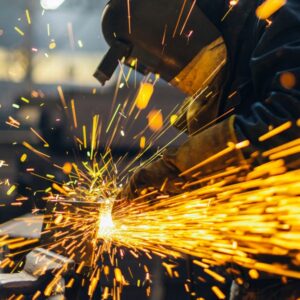
Understand Your Weld Fume Hazards
Regulations
Permissible Exposure Limits
There’s no single guideline for weld fume exposure. Instead, OSHA enforces Permissible Exposure Limits (PELs) for specific metals, reflecting limits over specific periods of time. For example, for aluminum, iron, and mild steel, the PEL is 5 milligrams of particulates per cubic meter of air (5 mg/m3) averaged over an 8-hour period. Metals that are more toxic, including chrome, manganese, stainless steel, nickel, and cadmium, have stricter PELs.
Threshold Limit Values
Many welding operations strive to stay within Threshold Limit Values (TLVs) spelled out by the American Conference of Governmental Industrial Hygienists (ACGIH). These estimates of the exposure level a worker can tolerate over a career, are based on current scientific research and may be lower than PELs. A reference to PELs and TLVs is the Pocket Guide to Chemical Hazards published by the National Institute for Occupational Safety and Health (NIOSH). Be aware, however, that your operation may have additional state and local requirements.
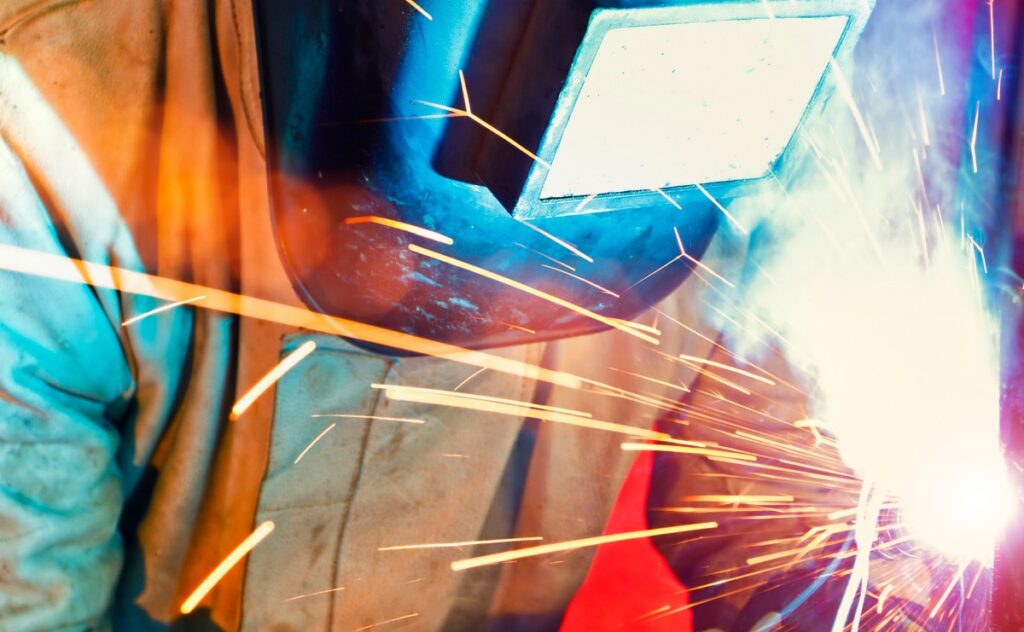
Ventilation Recommendations
Ventilation is crucial for drawing fumes away from a welder’s breathing zone. OSHA makes these recommendations about natural and engineered ventilation:
- Stay upwind if welding in open spaces or outdoors, although this does not guarantee safety.
- Use local exhaust ventilation (also called fume extraction) for indoor welding.
- Never weld in confined spaces without ventilation.
- Where there is no mechanical ventilation, use natural drafts and position the work to avoid exposure.
Welding, Laser & Plasma Cutting Applications
In welding, laser, and plasma cutting applications, there are two common ventilation designs most seen in facilities. The two examples are:
- Source capture or enclosing hoods are the most effective in controlling contaminants. However, they can restrict access and force reconsideration of material and product handling. Another option is capturing hoods. They are less effective than enclosures but can be adequate if properly used.
- Ambient ventilation filters air in the entire room to reduce the airborne fume concentration. Consider this method only if source capture is not possible and/or practical. Because general ventilation does not remove fume at the source, it does not limit exposure at the worker’s breathing zone.
Ventilation System Design
AST Canada can design the right ventilation system for your shop. Along with our own proprietary W/D Series wet/dry fume extraction system, we offer Torit dust & fume extractors and PowerCore TG Series collectors which sit on a smaller footprint and include ultra-high efficient filters.
Related Article
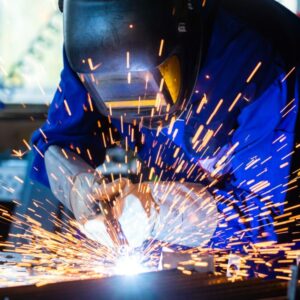
What to Look for in a Weld Fume Extraction System
Laser and Plasma Cutting
Thermal cutting applications, such as plasma and laser cutting, generate considerable levels of fumes and particulate that may present a health risk to operators and be detrimental to cutting machinery.
Frequently, integrated dust collectors in curing systems help reduce workers’ exposure to fumes and help protect expensive machinery. When selecting and designing a dust collector, consideration of thermally generated dust should include filtration challenges due to particle size, loading and combustible dust risk.
Related Article
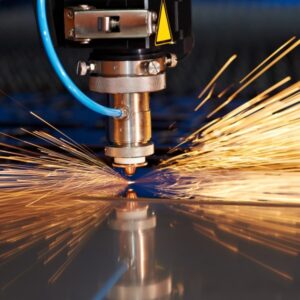
Laser and Plasma Applications: Selecting a Dust Collection System
IoT Enabled with iCue™ Connected Filtration Service
* may not be available on all models
Related Products
Source
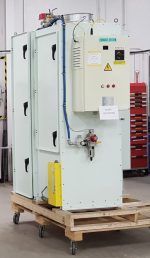
W/D Series Weld Fume Extractor
AST Canada’s proprietary W/D Series Robotic-Weld Fume Extractor (Patent Pending), is a Wet/Dry fume extraction system specifically designed to deal with harmful fumes produced in automated robotic welding applications.
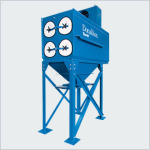
Downflo® Evolution
The Donaldson Torit® Downflo® Evolution (DFE) cartridge dust collector is capable of reducing equipment size and the number of required filters by up to 40%.
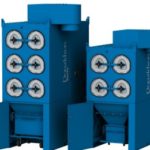
Packaged Downflo® Evolution
The Packaged Downflo® Evolution (DFEP) combines our industry-leading cartridge technology with an integrated fan and electrical controls – all in an attractive, quiet collector.
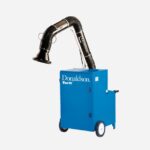
Easy-Trunk™ and Porta-Trunk™
Easy-Trunk™ and Porta-Trunk™ collectors are portable filter systems designed for light duty dust, smoke, and welding fume collection.
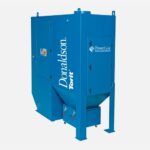
TG Series
The Donaldson Torit® PowerCore® TG Series dust collector is designed for thermally generated dust with a footprint up to 65% smaller than other cartridge collectors.
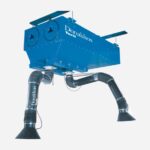
Trunk 2000
The Donaldson Trunk 2000 fume collector is a ceiling-mounted source collector designed to capture fumes generated from moderate-to-heavy welding applications.
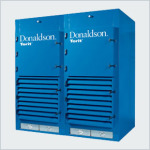
Downflo® WorkStation
Specifically designed for areas of dirty and/or noisy operations, the Donaldson Torit® Downflo® Workstation (DWST) applies no restrictions to worker movements or visibility.
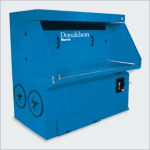
Weld Bench

Remote Weld Bench
The Donaldson Remote Weld Bench fume collectors are designed specifically for welding operations and provide higher filtration efficiency and longer filter life.
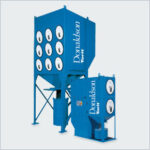
Downflo® Oval
The Donaldson Torit® Downflo® Oval (DFO) cartridge dust collector is a compact, high-efficiency unit that use oval-shaped filters suited for filtering submicron dust.
Ambient

Ambient
The Donaldson Ambient Collection System is a self-contained, ceiling-mounted dust collector system that utilizes Ultra-Web® cartridge filter technology.
Resources
Brochures
Related Articles

AST Canada has been helping clients find solutions for their unique Dust, Mist & Fume Collection needs for more than 40 years.
We can help you too.

